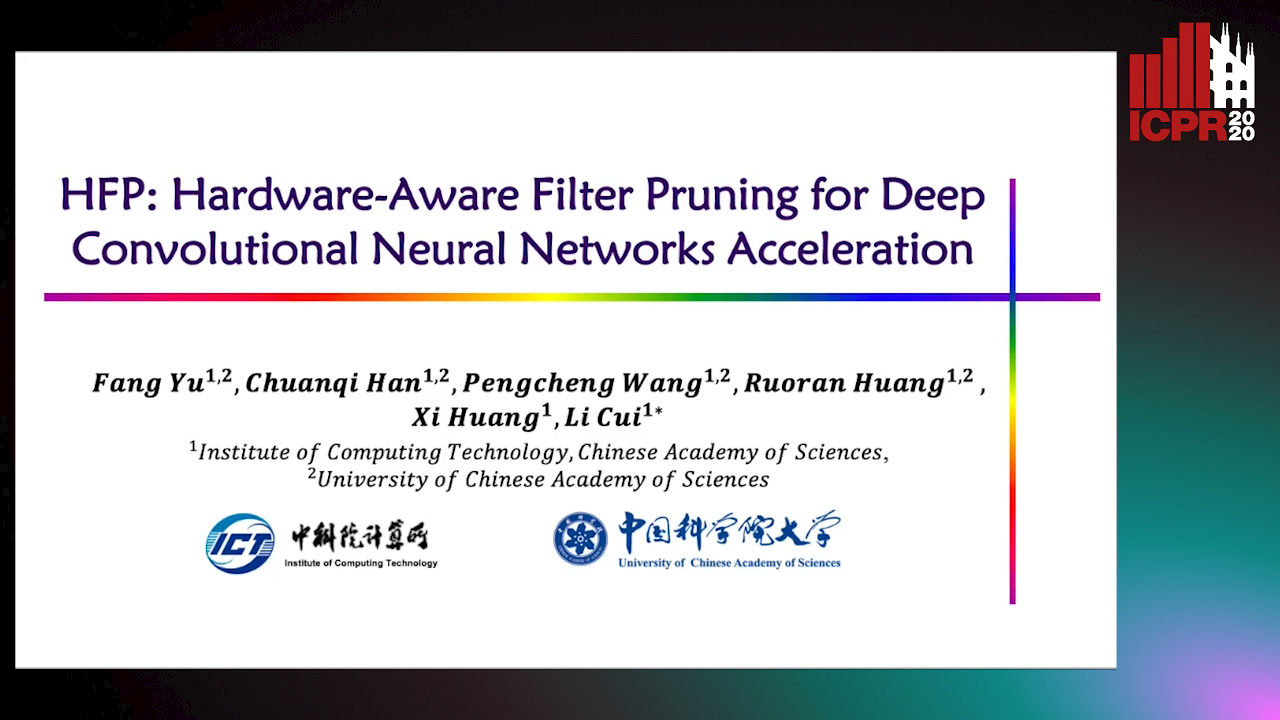Pengcheng Wang
Paper download is intended for registered attendees only, and is
subjected to the IEEE Copyright Policy. Any other use is strongly forbidden.
Papers from this author
HFP: Hardware-Aware Filter Pruning for Deep Convolutional Neural Networks Acceleration
Fang Yu, Chuanqi Han, Pengcheng Wang, Ruoran Huang, Xi Huang, Li Cui

Auto-TLDR; Hardware-Aware Filter Pruning for Convolutional Neural Networks
Abstract Slides Poster Similar
Convolutional Neural Networks (CNNs) are powerful but computationally demanding and memory intensive, thus impeding their practical applications on resource-constrained hardware. Filter pruning is an efficient approach for deep CNN compression and acceleration, which aims to eliminate some filters with tolerable performance degradation. In the literature, the majority of approaches prune networks by defining the redundant filters or training the networks with a sparsity prior loss function. These approaches mainly use FLOPs as their speed metric. However, the inference latency of pruned networks cannot be directly controlled on the hardware platform, which is an important dimension of practicality. To address this issue, we propose a novel Hardware-aware Filter Pruning method (HFP) which can produce pruned networks that satisfy the actual latency budget on the hardwares of interest. In addition, we propose an iterative pruning framework called Opti-Cut to decrease the accuracy degradation of pruning process and accelerate the pruning procedure whilst meeting the hardware budget. More specifically, HFP first builds up a lookup table for fast estimating the latency of target network about filter configuration layer by layer. Then, HFP leverages information gain (IG) to globally evaluate the filters' contribution to network output distribution. HFP utilizes the Opti-Cut framework to globally prune filters with the minimum IG one by one until the latency budget is satisfied. We verify the effectiveness of the proposed method on CIFAR-10 and ImageNet. Compared with the state-of-the-art pruning methods, HFP demonstrates superior performances on VGGNet, ResNet and MobileNet V1/V2.